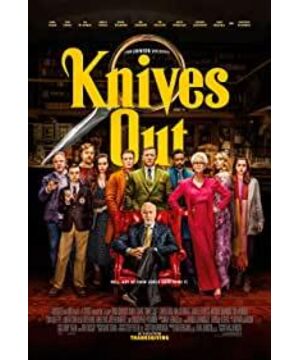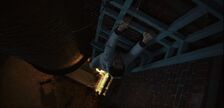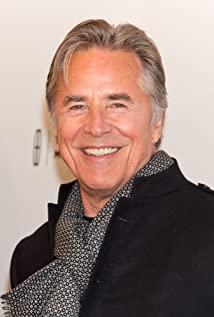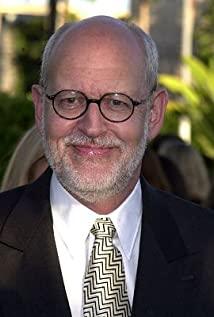Knife Out, just like the title of the film, the presentation of the truth in the film is like a sharp blade, which is simply presented to the audience. The movie is like a werewolf killing. The audience sits in the judge's chair at the beginning. After knowing everything about the heroine, it enters a more complicated situation with her perspective.
The beginning of the film directly presents the audience with a remote and unfathomable villa. The coffee cup printed with "MY HOUSE, MY ROLES, MY COFFEE" is served on the top floor, and those eccentric decorations are quickly inserted, proclaiming The identity of the owner of the house. The servant pushed open the door, and sure enough, the owner, Harlan Sloumby, fell on the bed, bleeding all over the place.
An elderly man, the center of family power, was found suddenly dead the day after his 85th birthday party, with every family member attending the party suspected.
The audience follows the restless heroine back to the villa, where she will be questioned by the police.
The interrogation since then is a defense after the "daybreak", but the difference is that almost everyone lied and concealed what they saw and heard. Even a family inevitably splashes dirty water on each other.
At the beginning, I thought it was an Agatha-style reasoning movie, and the retro British style also means tribute. So when family members were interrogated, I couldn't tell which was the truth and which was one-sided. As Marta's retrospective brings things to the fore, I realize the film's perspective is open, even anti-Agatha narrative. In Agatha's story, each character hides himself tightly, and only the protagonist fights together and defeats each other; and "Knives Out" starts from the very beginning. What they did was presented to the audience. During the interrogation, they lied to the police and concealed it, which did not affect the direction of the plot and the audience's understanding of them.
Especially Marta's recollection of the whole thing before answering the interrogation, her story is so complete and coherent that the audience thinks that they have an omniscient perspective. From then on, the audience's attention has been on how Marta concealed the truth. Detective Blank plays the role of a "prophet" who collects a lot of information and is convinced from the beginning that Harlan is not a simple suicide. , the deal between him and Marta became the main contradiction, until the real "Wolfman" appeared. I won't reveal who this "werewolf" is here.
A car chase scene is inserted in the film, and the audience's vision follows the heroine to jump out of the villa and go outside, which is rare in murder reasoning films. The final reversal came suddenly and of course, but this passage was not closely connected with the previous one, and the prophet Blank did not spit out the truth until the end. Although it is reasonable, I personally feel that I can only accept it reluctantly. Only then did the "judges" and the "civilians" know the truth together.
What surprised me most about this film was that it abandoned the traditional reasoning routine and adopted a "pseudo-omniscient perspective" narrative technique. Even if the protagonist's experience is so complete, it's not the truth of the matter (though I think the setting has a sense of purpose and is designed to cater for this narrative effect). There are many foreshadowings buried in the movie, and every turning point can be echoed in the front.
As for the soundtrack, it can be said that the suspense is produced to the greatest extent, and there is no deliberate surprise; the punchline of the whole film is distributed very reasonably, so that the audience, as a "judge", always has a pleasant mood to watch the play.
Finally, let’s talk about the political metaphor of the film. In this big white family supported by an old man, everyone has his own ghost. The conceited daughter, the cheating son-in-law, the useless son who only thinks about parasites, the daughter-in-law who cheats money every month, like every mystery drama, every family member of Harlan is a selfish parasite. Compared with the cause of Harlan's death, they are more concerned about the ownership of inheritance rights. And in such a big white family, different political stances distinguish them. The "extreme right Nazi kid" who is constantly checking his mobile phone, the "law defender" who eloquently agrees with the anti-immigration policy, expresses his sympathy. "Liberal Snow Whites", when their interests are not violated, they all assume a high profile, "care" and "understand" the carers and servants (they are immigrants, in an inherently middle-class alms-giving attitude). ) but when their interests were threatened, they immediately became hysterical. In the end, the "Wolfman" did not hesitate to kill his family for the sake of inheritance. On the contrary, as the immigrant heroine Marta, she is kind and simple, and it is her character that makes the case successfully solved. It's not hard to see that this is a poignant satire on "white supremacy" and the Trump administration, which is one of the reasons the film has sparked heated debate in North America.
Finally, the truth came out. The family stood downstairs and looked back at the heroine who finally won on the balcony. The "MY HOUSE, MY ROLES, MY COFFEE" on the coffee cup in her hand made me applaud.
View more about Knives Out reviews











